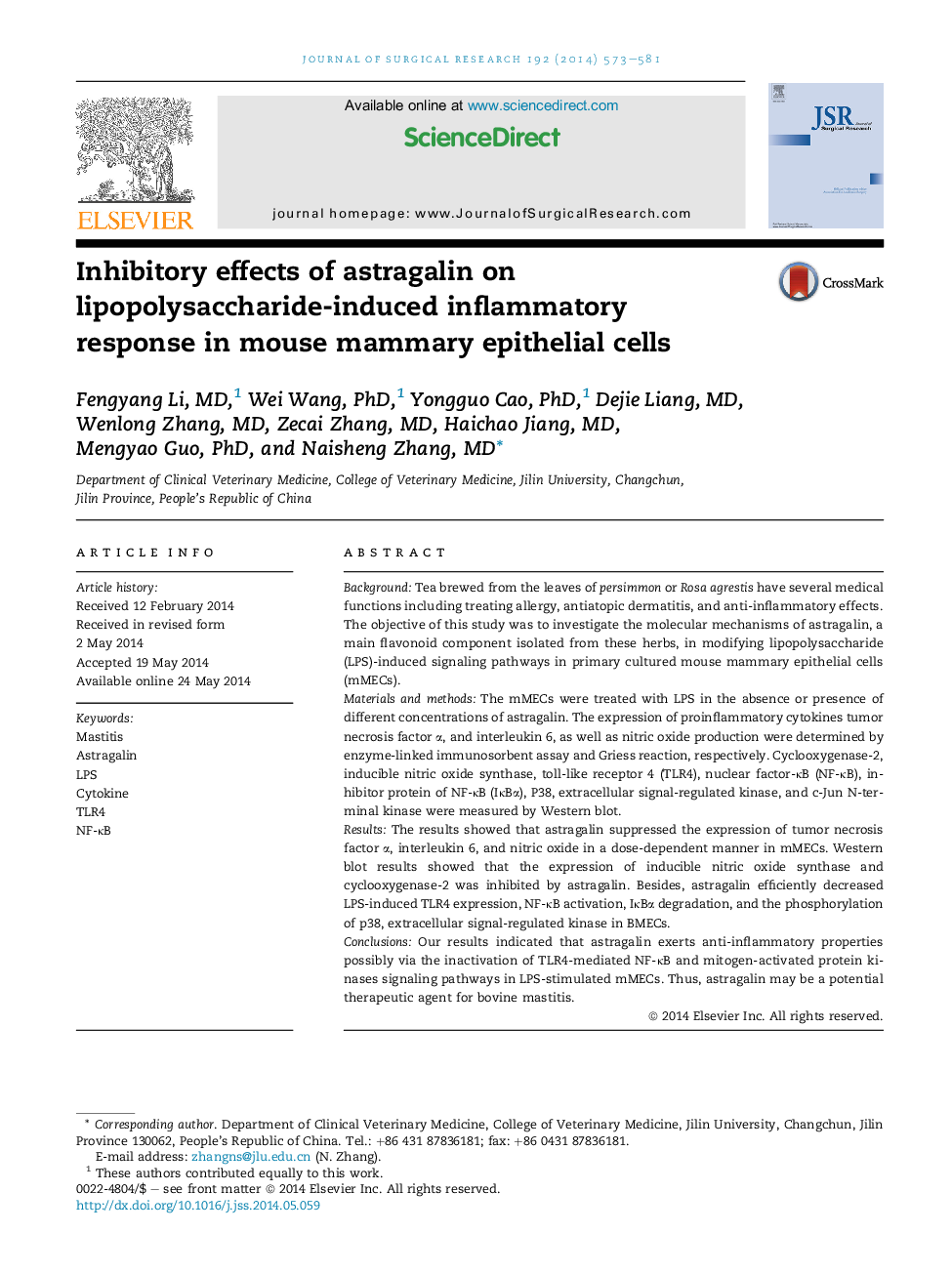| Article ID | Journal | Published Year | Pages | File Type |
|---|---|---|---|---|
| 4300034 | Journal of Surgical Research | 2014 | 9 Pages |
BackgroundTea brewed from the leaves of persimmon or Rosa agrestis have several medical functions including treating allergy, antiatopic dermatitis, and anti-inflammatory effects. The objective of this study was to investigate the molecular mechanisms of astragalin, a main flavonoid component isolated from these herbs, in modifying lipopolysaccharide (LPS)-induced signaling pathways in primary cultured mouse mammary epithelial cells (mMECs).Materials and methodsThe mMECs were treated with LPS in the absence or presence of different concentrations of astragalin. The expression of proinflammatory cytokines tumor necrosis factor α, and interleukin 6, as well as nitric oxide production were determined by enzyme-linked immunosorbent assay and Griess reaction, respectively. Cyclooxygenase-2, inducible nitric oxide synthase, toll-like receptor 4 (TLR4), nuclear factor-κB (NF-κB), inhibitor protein of NF-κB (IκBα), P38, extracellular signal-regulated kinase, and c-Jun N-terminal kinase were measured by Western blot.ResultsThe results showed that astragalin suppressed the expression of tumor necrosis factor α, interleukin 6, and nitric oxide in a dose-dependent manner in mMECs. Western blot results showed that the expression of inducible nitric oxide synthase and cyclooxygenase-2 was inhibited by astragalin. Besides, astragalin efficiently decreased LPS-induced TLR4 expression, NF-κB activation, IκBα degradation, and the phosphorylation of p38, extracellular signal-regulated kinase in BMECs.ConclusionsOur results indicated that astragalin exerts anti-inflammatory properties possibly via the inactivation of TLR4-mediated NF-κB and mitogen-activated protein kinases signaling pathways in LPS-stimulated mMECs. Thus, astragalin may be a potential therapeutic agent for bovine mastitis.
